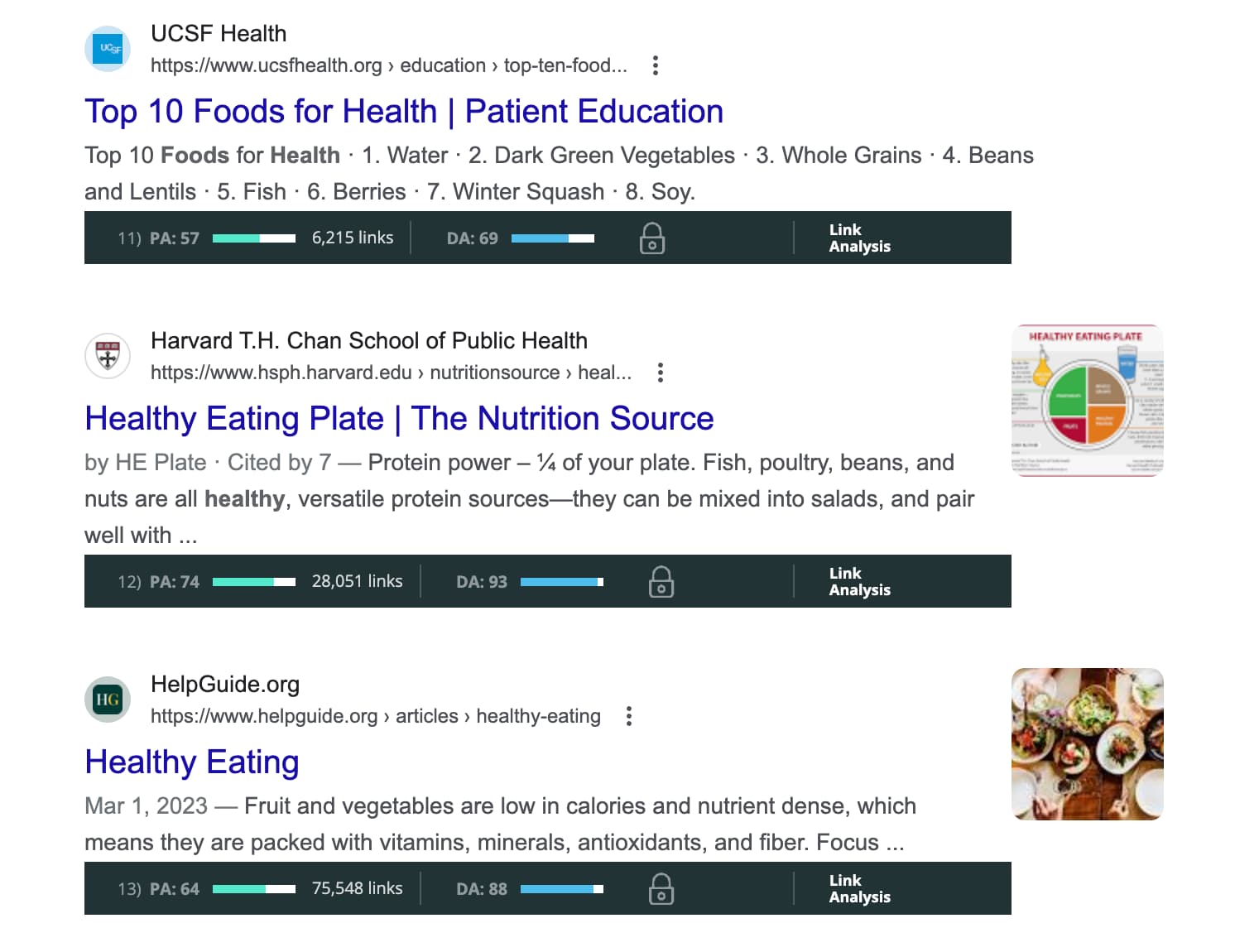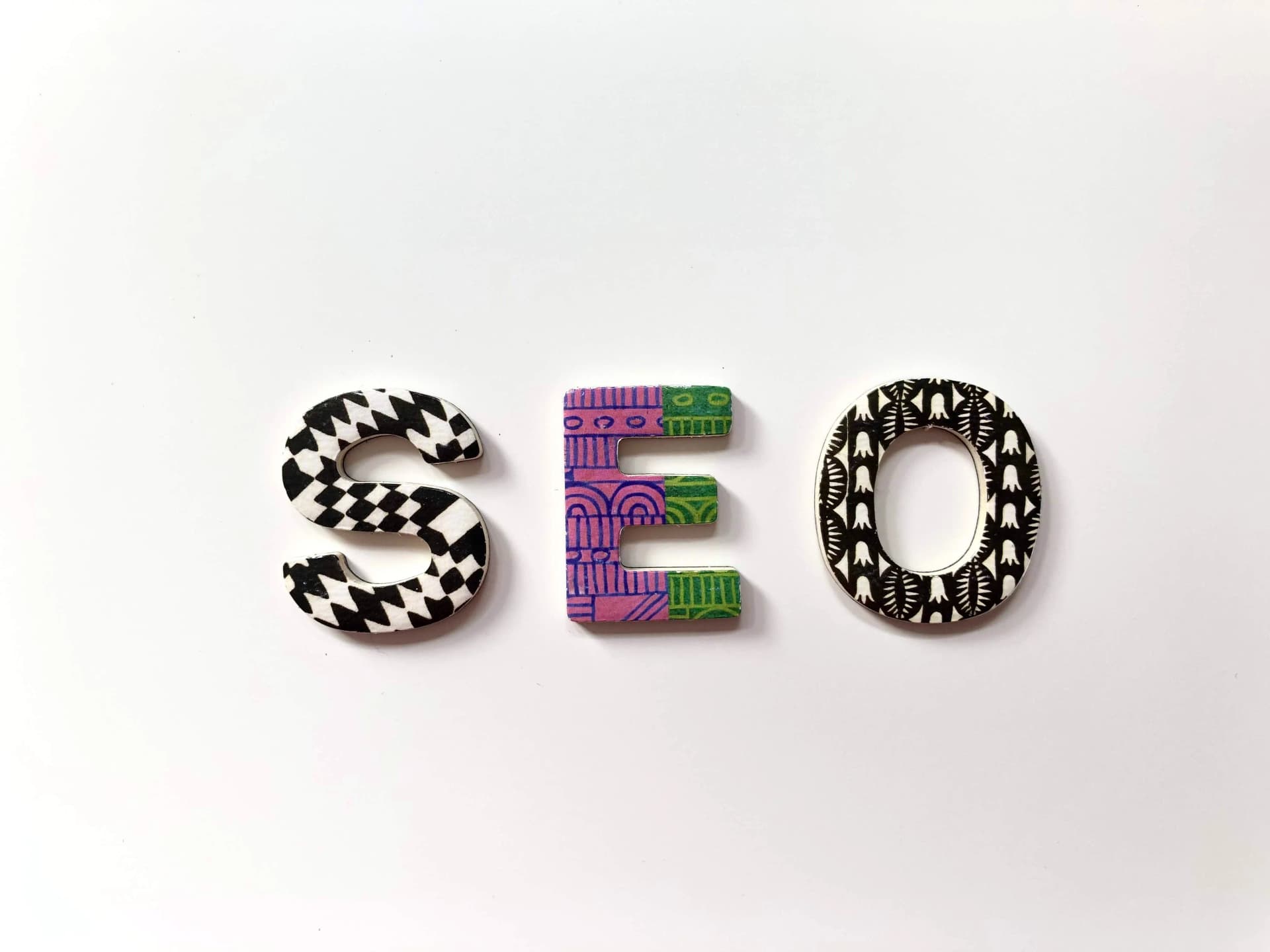8 min read
The importance of Page Authority for better SEO results?!
Ivana Vnučec Posted on January 21, 2024

What is page authority? If you work in SEO or marketing, you might come across the term “page authority”. In the world of SEO, the terrain is ever-shifting, and the metrics that determine search engine rankings continue to evolve. One such pivotal metric, often very important for web pages' success, is Page Authority (PA).
Understanding and harnessing the potential of page Page Authority can be the beacon guiding your content toward the coveted top spots in search engine results.
In this article, I will explain better what page authority is and explain the strategies to leverage it effectively.
Table of contents
- What is Domain Authority?
- What is Page Authority?
- Domain Authority vs. Page Authority?
- Why should I care about it?
- How do I check my Page Authority for free?
- Which pages should have good Page Authority?
- Factors that Influence Page Authority
- Does Page Authority increase traffic or does traffic increase Page Authority?
- When to invest in Page Authority?
- Conclusion on Page Authority
What is Domain Authority?
Page authority is usually often mentioned with domain authority. Moreover, domain authority is the overarching concept and often a more significant metric for overall website growth compared to page authority.
Before we dive into page authority, let's first define what is domain authority.
Domain Authority (DA) is a metric developed by Moz, a prominent company in the field of SEO software and tools. It's a search engine ranking score that predicts how well a website is likely to perform in search engine results. It is measured on a scale from 0 to 100, with higher scores indicating a greater likelihood of ranking well. Domain Authority is calculated based on multiple factors, including the number and quality of inbound links to the entire domain.
Now, having this in mind, we can define page authority.
What is Page Authority?
Page Authority (PA) is also a metric developed by Moz whose score predicts how well a** specific web page** is likely to rank in search engine results.
A scale to measure page authority is also a scale from 0 to 100, with higher scores indicating a greater likelihood of ranking well. Measurement is not based on any publicly available data from search engines, it has Moz-specific metrics. The metric is based on various factors, including the number and quality of inbound links, as well as the overall authority of the website.
PA can be a helpful comparative tool. You can use it to compare the potential** ranking strength of different pages** on your website or compare your pages to those of competitors. It's also useful for SEO strategies, helping to identify pages that need improvement in terms of links, content, or user experience.
Domain Authority vs. Page Authority?
Domain authority (DA) measures the overall strength of an entire website, considering factors like the quality and quantity of backlinks, content relevance, and site-wide performance. It encapsulates the collective potential of a domain to rank well in search results. Conversely, PA focuses on the strength of individual pages, considering specific link profiles, content quality, and relevance unique to each page. Although a high Domain Authority can positively influence the PA of specific pages within a domain, they are distinct metrics and can vary independently based on the unique factors affecting each.
Therefore, if you want to track overall website performance, you will focus on domain authority. But if you want to track specific page performance, you will want to know the page authority of this page.
Why should I care about it?
Higher Page Authority often correlates with better search engine rankings. This means your pages are more likely to appear on the first page of search results, where users are more likely to click. Improved search rankings result in increased organic traffic. This can bring potential customers to your site without relying solely on paid advertising. Let's consider a hypothetical scenario for a website over the course of one year:
Paid Advertising:
- Cost: $1,000 per month for paid ads.
- Monthly Visitors from Paid Ads: 2,000.
- Total Annual Cost: $12,000.
- Total Annual Visitors: 24,000.
Organic Traffic:
- Page Authority Optimization Cost: $1000 (assuming biannual optimization efforts).
- Monthly Organic Visitors: 3,000 (gradually increasing due to improved Page Authority).
- Total Annual Visitors: 36,000.
Comparison:
- Paid Advertising Cost: $12,000 for 24,000 visitors.
- Organic Traffic Cost: $500 for 36,000 visitors.
Despite an initial optimization cost, investing in Page Authority for organic traffic proves more cost-effective over time. Organic traffic attracts 50% more visitors than paid ads, with Page Authority requiring periodic, lower-cost optimization compared to constant ad expenses. This underscores the long-term value and efficiency of organic growth strategies.
How do I check my page authority for free?
To check Page Authority, you can use Google Chrome Extension MOZ, and in the bar below each search result see their PA links and Domain Authority (DA). For example, Apple's home page has a page authority of 93, while domain authority is 99.
One more example is websites about healthy food. With MOZ extensions, on your Google search results, you can see page authority, links that link on that page, and domain authority.

Which pages should have good page authority?
Optimizing Page Authority is crucial for various types of pages on your website, ensuring optimal visibility and search engine rankings. Here are some examples of pages that should have good page authority.
Early Stage Startup Website
In the early stages of a startup, establishing an online presence is crucial. Good PA can be beneficial for a startup's website as it can help improve the site's visibility in search engine results. This increased visibility can drive organic traffic, which is often essential for early-stage startups with limited marketing budgets.
E-commerce Site
For an e-commerce site, where competition can be intense, having a high Page Authority can contribute to better search rankings. This can result in more visibility for product pages, potentially leading to increased sales. E-commerce sites often benefit from organic traffic, and a strong Page Authority can help achieve this.
Product Landing Page
A product landing page is a specific page created to promote and sell a particular product. Visibility and ranking are crucial for a product landing page, as a higher Page Authority increases the likelihood of appearing on the first page of search engine results. This increased visibility not only attracts potential customers actively seeking information about the product but also enhances the overall credibility and trustworthiness of the product and brand. Therefore, investing in optimizing the Page Authority of your product landing page is essential for maximizing its reach and impact in the online marketplace.

Blog Posts
Regularly publishing high-quality blog posts and content can enhance your website's authority. Each blog post contributes to the overall authority of your domain and can attract a diverse range of organic traffic.
Case Studies
If your business has successful case studies, optimizing these pages for search engines can help demonstrate your expertise and attract potential clients or customers interested in similar solutions.
Event and Webinar Pages
If your website hosts events or webinars, optimizing these pages can increase visibility and attract participants. This is especially important if your events offer valuable content related to your industry.
About Us Pages
The About Us pages are essential for building trust and credibility. Optimizing these pages for search engines can help users find valuable information about your company, leading to a positive perception.
Factors that influence page authority
Many factors influence Page Authority (PA). These factors can also predict how well a specific webpage is likely to rank on search engine result pages. While the exact algorithm used by Moz to calculate PA is proprietary, the following are some common factors that generally increase it:
Backlinks
The quantity and quality of links pointing to a specific page are crucial. High-quality backlinks from authoritative and relevant websites carry more weight . Having links from a variety of sources is generally better than having many links from a single source. A diverse set of backlinks from different domains can positively impact PA.
Page Content
The content on the page plays a significant role. Well-written, relevant, and valuable content is more likely to attract links and contribute to higher Page Authority. Content should be closely related to the topic or purpose of the webpage. It should align with the interests and needs of the target audience. Moreover, incorporating images, videos, infographics, and other multimedia elements can enhance the overall user experience and make the content more engaging.
On-Page SEO
Factors such as keyword optimization, meta tags, headings, and overall on-page optimization contribute to a page's visibility and, consequently, its authority. Keyword optimization involves strategically incorporating relevant keywords into a webpage's content to signal its significance to search engines, thereby improving its visibility in search results. Meta tags provide concise information for search engines that influences click-through rates on your pages.

Other than that, headings are also an important part of SEO optimization. You can organize them with tags like H1, H2, and H3, which creates a clearer hierarchy, aiding both user comprehension and search engine understanding.
Additionally, on-page optimization encompasses elements like image optimization. Image optimization involves compressing images to reduce file size, which improves webpage loading times and contributes to a better user experience. Additionally, using descriptive and relevant file names, along with alt text, helps search engines understand the content and context of the images, potentially improving the page's visibility in image search results.
Page Load Time
Faster-loading pages indeed tend to provide a better user experience.
But beyond user experience, search engines, such as Google, prioritize faster-loading pages as part of their ranking algorithms! This emphasis on page speed can influence a page's authority, as search engines recognize and reward websites that offer a seamless and efficient experience to users. Therefore, optimizing page speed is not only beneficial for user satisfaction but also plays a role in the broader context of improving Page Authority through adherence to search engine preferences.
Social Signals
Even though the direct impact of social media on PA is still debated within the SEO community, let's see how they can influence it indirectly.
While social signals themselves (likes, shares, etc.) may not be direct ranking factors for search engines, the increased visibility and engagement can indirectly contribute to a web page's authority. For example, when content gains visibility on social media, it increases the likelihood that other websites or individuals may link to that content in their blogs, articles, or websites.

Also, social media provides a different channel for traffic. Diversifying traffic sources is seen positively by search engines. If a webpage receives traffic from social media, search engines may interpret it as a signal that the content is relevant and valuable to a wide audience.
Domain Authority
The overall authority of the domain to which the page belongs can influence the Page Authority of individual pages. If the domain is authoritative, its pages are likely to have higher Page Authority.
User Experience
Positive user experiences, such as longer time spent on a page, lower bounce rates, and higher click-through rates, contribute to positive engagement metrics. Lower bounce rates are often associated with higher-quality content, and search engines may reward such pages with improved authority. Search engines may interpret these signals as indicators of quality content, potentially leading to an increase in Page Authority.
It's important to note that these factors interact in a complex way, and the specific weight given to each factor can vary. Additionally, search engine algorithms are constantly evolving, and factors influencing PA may change over time.
Does page authority increase traffic or does traffic increase page authority?
Page Authority and increased traffic are often interrelated, but it's essential to understand their relationship. Page Authority can be both a reason and a consequence of increased traffic. Let's break down the relationship:
Page Authority increases traffic: When a page has a higher Page Authority, it is more likely to rank higher in search engine results. This improved visibility means that more people are likely to click on that page. In this way, Page Authority acts as a reason for increased organic traffic, as pages with higher authority are more prominently featured in search results.
Traffic increases page authority: As a page receives more traffic, search engines often interpret this as a signal of its relevance and popularity. Over time, search engines may reward the page with higher Page Authority, recognizing it as a valuable and authoritative source. Therefore, increased traffic can be a consequence of higher Page Authority.
Page Authority and increased traffic often create a feedback loop. Higher PA contributes to better search rankings and visibility, leading to more traffic, while more traffic signals to search engines that the page is valuable, which enhances the page’s PA. In conclusion, Page Authority and increased traffic are interconnected, each influencing the other. Therefore, you can also see PA as a simple metric for the quality and authority of your website content.

When to invest in page authority?
Investing in Page Authority is a continuous process that should start early and be consistently maintained to ensure long-term online visibility and success.
Start investing in Page Authority in the early stages of your website or product launch. The sooner you start optimizing your pages for search engines, the better chances you have of building a strong online presence. If you're launching a new product, service, or a significant update, it's a good time to focus on Page Authority. This ensures that your new content is well-optimized for search engines. Keep in mind that PA is not a one-time effort. Regularly monitor and update your content, implement SEO best practices, and build quality backlinks to maintain or improve your Page Authority over time.
Conclusion on page authority
While Page Authority is a useful metric, it's essential to remember that it's just one of many factors in SEO. Search engines like Google use complex algorithms that consider numerous variables beyond what PA measures.
It's also important to note that Page Authority is specific to Moz and might not directly correlate with how a page ranks on search engines like Google. Ultimately, PA serves as a valuable comparative tool to assess the potential ranking strength of individual web pages based on Moz's algorithm.


